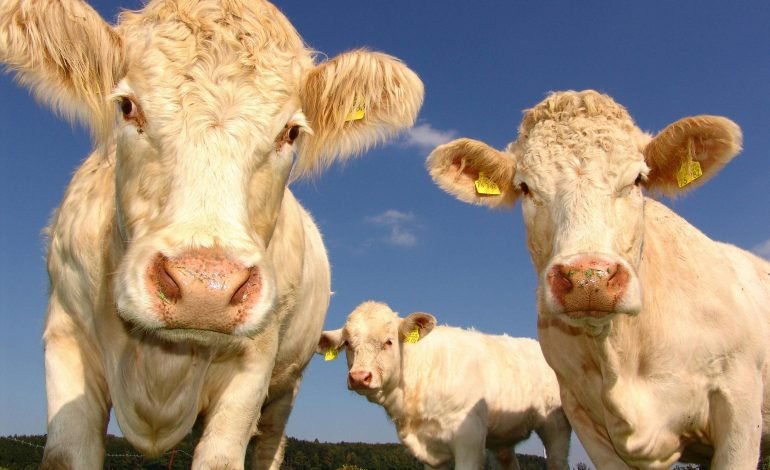UK’s Gene-Editing Legislation in Limbo: Scientists Warn of Falling Behind

In recent years, the UK has been at the forefront of gene-editing technology, alongside countries like the US and China. The Precision Breeding Act, passed last year, was meant to usher in a new era of gene-edited food in England. However, the earlier-than-expected election has left the Act’s implementation stalled, raising concerns among British scientists who fear the UK may lose its leading position in this field. Gene-editing technology offers the potential to enhance crops and livestock, making them more productive and resistant to diseases, which could reduce antibiotic use and help combat climate change by lowering methane emissions. However, with secondary legislation now delayed, the UK risks being overtaken by countries like the US, Japan, and Brazil, where gene-edited products are already available on shelves.
Supporters of gene editing argue that it could revolutionise agriculture, creating healthier, more resilient crops and livestock that could withstand environmental pressures and diseases. Tomatoes rich in calming compounds and faster-growing fish are already on sale in Japan, while the US is developing heat-resistant cattle and seedless blackberries. But while some celebrate these advancements, others voice concerns about animal welfare and food safety, arguing that the long-term implications are still uncertain.
Despite the UK’s potential to be a world leader in gene-editing, its path forward has been complicated by political and regulatory hurdles. The new Labour government’s pledge for closer alignment with the EU, which has strict regulations on gene-edited and genetically modified crops, could further delay the process. EU regulations have long been stringent due to public opposition and safety concerns around genetically modified organisms (GMOs), and gene editing is currently subject to the same stringent rules.
Scientists stress that gene editing differs from older GM technologies. Unlike GM, which involves adding foreign genes, gene editing makes precise changes within the organism’s own DNA, changes that could occur naturally but would take much longer through traditional breeding methods. However, regulatory alignment with the EU could mean that the UK’s plans for gene-edited foods could remain stuck in legislative limbo.
Many scientists, including those from leading institutions like Rothamsted Research and the Roslin Institute, have expressed their frustration. In a recent plea to Defra, over 50 scientists urged the government to act swiftly to pass the required secondary legislation. They warn that failure to do so could result in a significant loss of investment, scientific talent, and economic opportunities as other countries race ahead. Meanwhile, environmental and animal welfare groups remain sceptical, warning of the potential for unforeseen consequences and the risk of intensifying animal farming conditions.
For some, the ethical debate surrounding gene editing remains complex. Compassion in World Farming (CIWF) and other campaigners worry that modifying animals to be more disease-resistant could exacerbate the already severe conditions under which many farm animals are raised. However, others see the potential for more ethical applications, such as developing disease-resistant animals that could reduce the need for harmful farming practices.
The global race to develop and regulate gene-edited foods is moving rapidly. Countries like Thailand, Canada, and Australia are already putting frameworks in place, and New Zealand, known for its cautious approach, is set to introduce new legislation. In contrast, the UK finds itself at a crossroads, caught between scientific ambition and regulatory caution.
The outcome of the UK’s stalled gene-editing legislation will have far-reaching implications, not only for the nation’s scientific community but also for its role in the global agricultural landscape. As countries push forward with new gene-editing regulations, the UK must decide whether it will lead or lag in this rapidly evolving field.
The Roslin Institute, known for pioneering work like cloning Dolly the sheep, continues to lead in gene-editing research, exploring innovations such as disease-resistant livestock and crops (Roslin Institute’s gene-editing research).
For more updates on gene-editing legislation and insights on how this could impact the UK’s agricultural future, visit EyeOnLondon.









